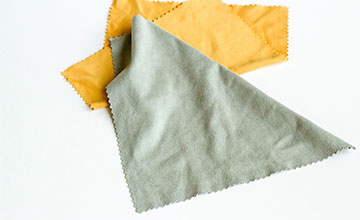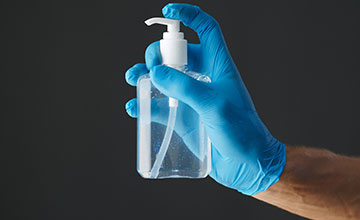Antimicrobial Technology
Antimicrobial technology has gained immense relevance across various sectors due to their ability to inhibit the growth of harmful microorganisms such as bacteria, fungi, and viruses. Whether used in healthcare, textiles, or construction, antimicrobial products are designed to create safer, more hygienic environments by preventing the proliferation of these pathogens.
Antimicrobial Coatings
One of the most widely adopted applications of antimicrobial technology is in coatings. These specialized coatings are applied to surfaces in various industries to inhibit the growth of harmful microorganisms. Antimicrobial coatings work by incorporating active agents, such as silver or copper, which interact with the microbes at a cellular level, disrupting their ability to function and reproduce.
In industries like healthcare, antimicrobial coatings are applied to frequently touched surfaces such as door handles, railings, and medical equipment to reduce the risk of cross-contamination. The benefits extend beyond healthcare, as antimicrobial coatings are also used in food processing plants, commercial spaces, and public transportation systems. By preventing the buildup of microbes, these coatings help maintain cleanliness in environments where hygiene is paramount.
Moreover, antimicrobial coatings offer long-term protection. Once applied, they continue to reduce microbial growth over time, providing ongoing safety without the need for frequent cleaning or disinfection. This not only helps in maintaining a hygienic environment but also reduces maintenance costs and efforts.

Antimicrobial Fabrics
In the textile industry, antimicrobial technologies have revolutionized how fabrics are designed to withstand microbial contamination. Antimicrobial fabrics are treated with substances that prevent the growth of bacteria and fungi, making them ideal for use in environments where hygiene is crucial. For example, antimicrobial textiles are extensively used in medical settings, where hospital linens, gowns, and drapes require continuous protection against pathogens.
These fabrics are also found in the clothing industry, particularly in sportswear and activewear. Antimicrobial textiles help inhibit odour-causing bacteria that thrive on sweat, making the garments more comfortable and hygienic. The treatment process for these textiles often involves the integration of silver or other antimicrobial agents directly into the fabric fibres, ensuring that the protective properties remain active even after multiple washes.
Antimicrobial Silver
Antimicrobial silver has been a key player in antimicrobial technologies for centuries. The ability of silver ions (Ag+) to disrupt the life cycle of microbes is well-documented, and its use in modern products continues to grow. In the presence of moisture, silver releases ions that interact with microbial cells, interfering with processes such as cell respiration and replication.
Antimicrobial silver is used in various industries, including healthcare, textiles, and coatings. Its effectiveness against a broad spectrum of microorganisms, including bacteria, fungi, and viruses, makes it a versatile solution for preventing contamination. From medical devices to wound dressings, antimicrobial silver is applied in areas where reducing the risk of infection is critical. Its use in fabrics, such as antimicrobial textiles, ensures that garments and materials remain protected against microbial threats, even with frequent use.
Antimicrobial Paints
Antimicrobial paints are becoming increasingly popular in environments where hygiene is a priority. These paints are formulated with antimicrobial agents, often silver or copper, that actively combat the growth of microbes on painted surfaces. When applied to walls, ceilings, and other surfaces, antimicrobial paints create a layer of protection that reduces the presence of harmful microorganisms.
In healthcare settings, antimicrobial paints are used in patient rooms, operating theatres, and high-touch areas to help control the spread of infections. Similarly, in educational institutions, offices, and public buildings, these paints contribute to creating healthier environments by minimizing the risk of microbial contamination. Beyond their protective benefits, antimicrobial paints also offer aesthetic advantages, maintaining the appearance of surfaces while simultaneously providing a hygienic solution.
One of the key benefits of antimicrobial paints is their durability. Unlike traditional cleaning methods that may require frequent application, antimicrobial paints provide long-lasting protection with minimal maintenance. This makes them a cost-effective solution for maintaining cleanliness over time.
Copper Antimicrobial Technologies
While silver is widely used in antimicrobial technologies, copper is another material that has proven to be highly effective in combating microorganisms. Copper has inherent antimicrobial properties that make it a powerful agent against bacteria and viruses. When microbes come into contact with a copper surface, the metal disrupts their cellular processes, leading to their death.
Copper antimicrobial technologies are employed in healthcare facilities, particularly on high-touch surfaces such as doorknobs, bed rails, and IV poles. Studies have shown that copper surfaces can significantly reduce the number of viable microorganisms, making them a valuable addition to infection control measures. Unlike other antimicrobial agents, copper continues to provide protection without losing its effectiveness over time.


Antimicrobial Protection
The role of antimicrobial protection is becoming increasingly critical as industries strive to maintain hygienic standards in response to rising awareness of infectious diseases. Antimicrobial solutions, whether in coatings, fabrics, or paints, offer an additional layer of defence by inhibiting the growth of harmful microorganisms. These products are designed to complement existing cleaning protocols, ensuring that surfaces and materials remain protected even in between routine sanitation efforts.
Industries such as healthcare, food processing, and hospitality are particularly reliant on antimicrobial protection to create environments that are safe for both workers and consumers. In healthcare, for instance, antimicrobial coatings and fabrics help reduce the risk of hospital-acquired infections, while antimicrobial paints contribute to maintaining clean and sterile environments. Similarly, in the hospitality industry, antimicrobial fabrics and surfaces ensure that guests are protected from potential microbial threats.
By incorporating antimicrobial technologies into products and environments, industries can take proactive steps toward improving hygiene and reducing the spread of harmful microorganisms. This not only enhances safety but also fosters greater trust and confidence among consumers, workers, and the public.
As the need for cleaner, safer environments grow, the role of antimicrobial protection will continue to expand, offering innovative solutions to combat microbial contamination and improve public health.

